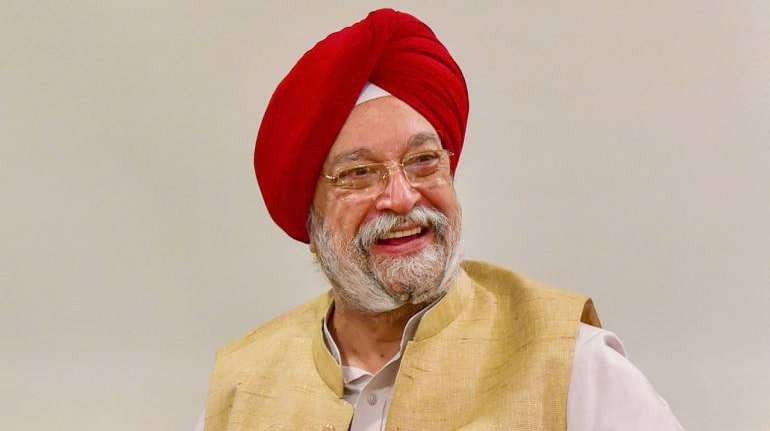



The government should not be running airports and airlines, Civil Aviation Minister Hardeep Singh Puri said on Sunday, adding that he hopes to privatise Air India during 2020. His remarks come at a time when the Kerala government has opposed the Union Cabinet's approval on August 19 to lease out the Thiruvananthapuram airport to Adani Enterprises under the public-private partnership (PPP) model for a period of 50 years.
Addressing a virtual meet on Namo app, Puri said, "I can tell you from my heart the government should not be running airports and the government should not be running airlines."
The Centre-run Airports Authority of India (AAI) owns and manages more than 100 airports, including the one in Kerala's capital city.
On Air India's privatisation, Puri said, "As a going concern, one that is attractive to potential bidders, we should privatise it (Air India). And I am hopeful that we will be able to complete that privatisation process during this year."
Last Tuesday, the Central government extended by two months the deadline for placing bids for Air India till October 30 as the COVID-19 fallout has disrupted economic activity globally.
The process of stake sale in the national carrier was initiated on January 27. This is the fourth extension given by the government for putting in bids.
"If the government runs an airport or an airline, then they have to follow the government rules like L1 and L2, and that is not how commercial entities can run," Puri said.
When the government issues a tender, the lowest bidder deemed as L1 is the winner.
Puri said he expects that the domestic air traffic would reach pre-COVID levels by the end of this year.
Domestic flights resumed on May 25 after a gap of two months due to the coronavirus-triggered lockdown. Currently, airlines are allowed to operate maximum 45 per cent of their pre-COVID domestic flights.
The central government privatised six major airports -- Lucknow, Ahmedabad, Jaipur, Mangaluru, Thiruvananthapuram, and Guwahati -- in February 2019. After a competitive bidding process, Adani Enterprises won the rights to run all of them.
In July 2019, the Union Cabinet had approved the proposal for leasing out three airports -- Ahmedabad, Mangaluru and Lucknow - to Adani Enterprises.
On August 19 this year, the Union Cabinet approved the proposal for leasing out the other three airports to the Ahmedabad-based company.
Earlier this month, Kerala Chief Minister Pinarayi Vijayan wrote a letter to Prime Minister Narendra Modi opposing the August 19 Cabinet decision to lease out the Thiruvananthapuram airport to the company.
Vijayan stated in the letter that the Centre needs to reconsider the decision as it will be "difficult" for the state to cooperate.
Kerala's repeated requests to entrust the airport management with the special purpose vehicle (SPV) in which the state government is the major stakeholder was also ignored, Vijayan mentioned.
"In view of the unilateral decision taken by the Government of India without giving credence to the cogent arguments put forward by the State government, it will be difficult for us to offer cooperation to the implementation of the decision, which is against the wishes of the people of the State," he said in the letter.
Follow our full coverage of the coronavirus pandemic here.
Discover the latest Business News, Sensex, and Nifty updates. Obtain Personal Finance insights, tax queries, and expert opinions on Moneycontrol or download the Moneycontrol App to stay updated!
Find the best of Al News in one place, specially curated for you every weekend.
Stay on top of the latest tech trends and biggest startup news.